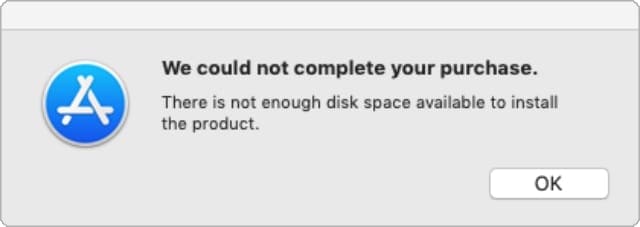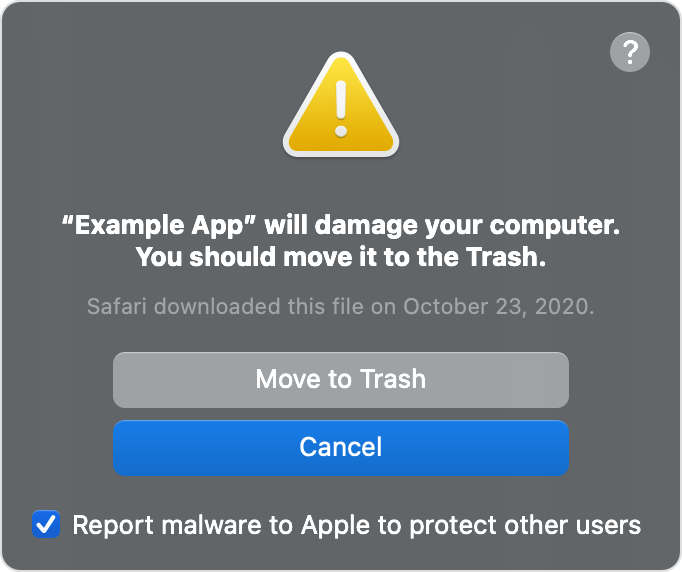

- #I PURCHASED A PPPLICATION FROM THE MAC APP STORE AND IT ASKS FOR INFO, REPORT THIS? INSTALL#
- #I PURCHASED A PPPLICATION FROM THE MAC APP STORE AND IT ASKS FOR INFO, REPORT THIS? SOFTWARE#
- #I PURCHASED A PPPLICATION FROM THE MAC APP STORE AND IT ASKS FOR INFO, REPORT THIS? CODE#
- #I PURCHASED A PPPLICATION FROM THE MAC APP STORE AND IT ASKS FOR INFO, REPORT THIS? OFFLINE#
That said, Malwarebytes is still conducting further analysis, and suggests that it’s possible that the encryption used by EvilQuest could be easier to crack, but that’s far from a sure thing.
#I PURCHASED A PPPLICATION FROM THE MAC APP STORE AND IT ASKS FOR INFO, REPORT THIS? OFFLINE#
If you have a cloud service that provides versioning or the ability to restore from older backups, you could get some of these back, but they’re ultimately no replacement for actual regular offline backups.

Synchronized cloud storage won’t help you here either, since even if you’re using iCloud, Google Drive, Dropbox, or another similar service, as your files are encrypted, the encrypted versions will be uploaded to your cloud storage service, overwriting the unencrypted ones. This of course is where the “ransom” in “ransomware” comes in, since what EvilQuest does it to effectively hold all of your files, and in fact potentially your entire system, hostage, and due to the nature of encryption, there really is no simple way to get back at your data unless of course you have backups from before your computer became infected. While it apparently takes a bit of time before the ransomware starts doing its thing, once it does users are shown a pop-up telling them that their files are now encrypted, and presenting a limited time offer for a “decryption service” that can be used to unlock your files. Malwarebytes has a more in-depth analysis for those interested in the gory technical details of how this all gets installed on your Mac, but the main effect of this particularly nasty little piece of ransomware is to start encrypting whatever files it can get its hands on, from your documents to system files and things like the macOS system Keychain.

Notably, the actual legitimately purchased version of Little Snitch doesn’t come as a package file at all. Postinstall scripts normally run to clean up files after the installation of an app, but of course they can do a lot more, since they’re ultimately just scripts that run on your Mac.
#I PURCHASED A PPPLICATION FROM THE MAC APP STORE AND IT ASKS FOR INFO, REPORT THIS? INSTALL#
The download comes in a PKG file that actually contains a valid copy of Little Snitch but also bakes in another script that runs after users install the app that dumps ransomware onto your Mac. The latest case in point of this is new “ransomware” that’s not being discovered latched onto seemingly-legit, albeit pirated, Mac apps.Īs reported by Malwarebytes, the new ransomware, which has been dubbed “EvilQuest” was found in a pirate copy of the Little Snitch app that’s been making the rounds on Russian forums and torrents.
#I PURCHASED A PPPLICATION FROM THE MAC APP STORE AND IT ASKS FOR INFO, REPORT THIS? CODE#
In short, macOS can only go so far in protecting users from their own stupidity, and applications are still applications, so if you download a program that contains bad code and explicitly run it, macOS will happily follow your instructions, even if that means wiping out every file in your Documents folder. While it’s true that the more secure architecture of macOS makes it less prone to viruses, especially compared to the Windows PCs of yesteryear, that by no mean makes your Mac immune to viruses, and this is especially true if you’re deliberately downloading a virus onto your computer (whether you know it or not).

This is something you can’t be the least bit confident in when getting apps from other, more questionable sources, however, many Mac users are lulled into a false sense of security based on the old myth that “Macs don’t get viruses.” ‘EvilQuest’Įven if you don’t buy all of your apps from the Mac App Store - and let’s face it, some apps just aren’t available that way anyway - when you purchase an app from a legitimate developer’s website, you know you’ll be getting a clean version of the app.
#I PURCHASED A PPPLICATION FROM THE MAC APP STORE AND IT ASKS FOR INFO, REPORT THIS? SOFTWARE#
However, since Mac apps can still be installed independently of the Mac App Store, software pirates haven’t had to resort to such complex means to distribute bootlegged Mac apps, but even leaving aside the obvious ethical issues if you’re looking for a way around paying for your Mac apps, here’s another cautionary tale that should make you think twice.


 0 kommentar(er)
0 kommentar(er)
